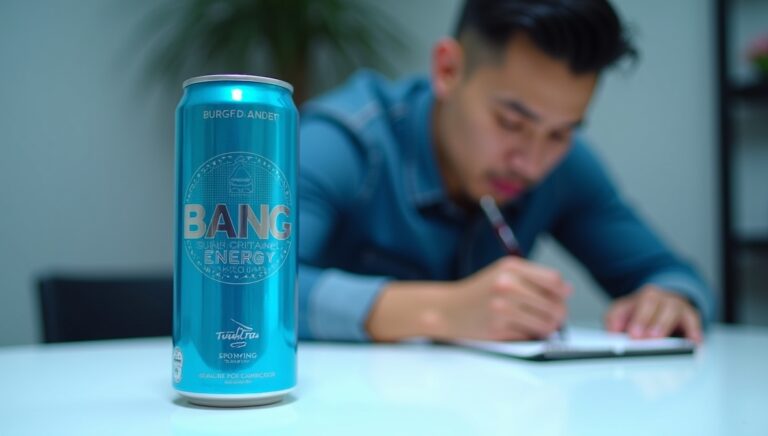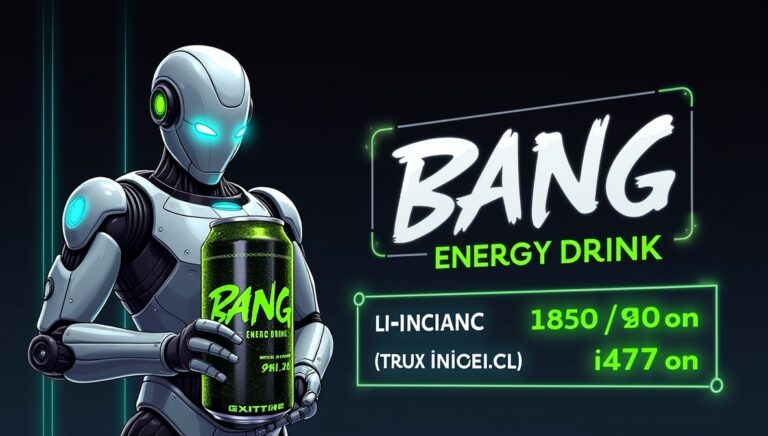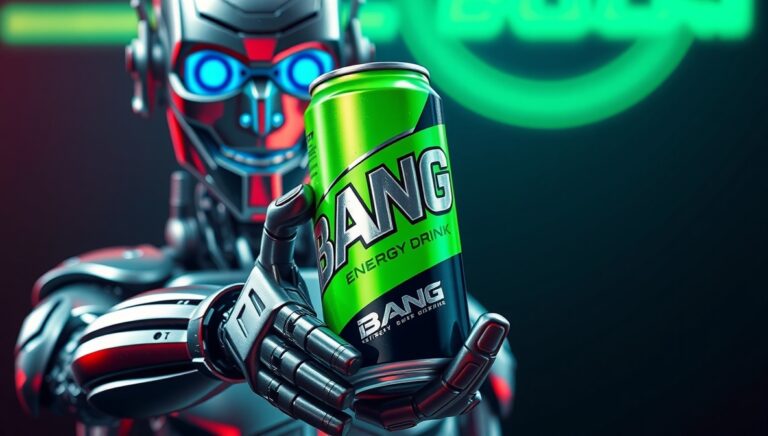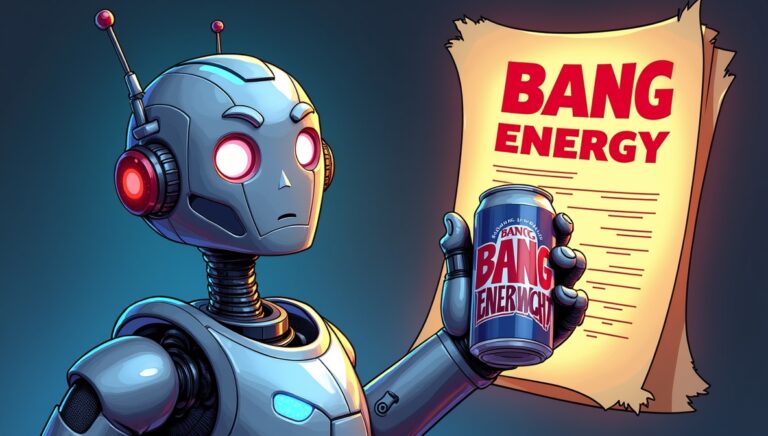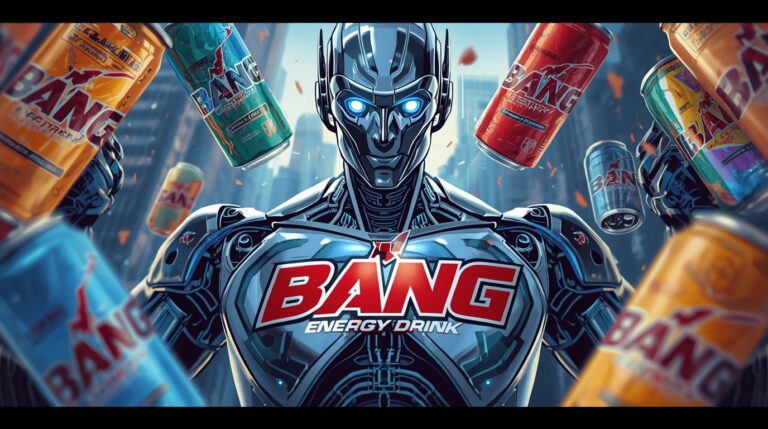How Much Caffeine Is in Bang Energy Drink – A Detailed Guide to Its Impact and Effects
Energy drinks have become a staple for people who want an instant energy boost, especially during long work hours, workouts, or study sessions. Among the most popular of these is Bang Energy, a brand known for its vibrant flavors and high performance-boosting effects. However, one question continues to intrigue consumers and health enthusiasts alike — how much caffeine is in Bang energy drink? Understanding the caffeine content is essential not only for fitness enthusiasts but also for those who consume it for mental alertness and endurance. Caffeine, when consumed in moderation, can be beneficial, but overconsumption might lead to several side effects. This comprehensive article explores every detail surrounding Bang Energy’s caffeine content, its effects, ingredients, and safe consumption guidelines.
The Rise of Bang Energy
Bang Energy has made a significant mark in the energy drink industry, offering bold flavors and a strong marketing appeal aimed at athletes, students, and professionals. Created by Vital Pharmaceuticals (VPX), this drink stands out because it’s marketed as a “performance-enhancing” beverage rather than just another source of caffeine. But while most consumers are drawn to its promise of “zero sugar” and “zero calories,” what really catches attention is how much caffeine is in Bang energy drink and how it compares to other beverages on the market.
Caffeine is one of the most widely consumed stimulants globally, and Bang Energy capitalizes on that. It positions itself as a cleaner and more effective energy source, free from sugar crashes associated with other brands. The company’s aggressive branding and partnerships with athletes have turned Bang Energy into a cultural phenomenon. Yet, the central question remains: how safe and effective is it considering its high caffeine content?
Understanding Caffeine and Its Role in Energy Drinks
Caffeine is a natural stimulant that primarily affects the brain and central nervous system, helping you stay alert and fight off drowsiness. When consumed in controlled amounts, it can boost focus, endurance, and overall physical performance. However, the effectiveness and safety of caffeine depend heavily on dosage. Many people who regularly drink coffee or energy drinks often fail to realize how much caffeine is in Bang energy drink, which is crucial to managing daily intake.
According to several nutrition experts, caffeine doses above 400 mg per day may lead to jitteriness, anxiety, insomnia, or rapid heartbeat. Since each Bang Energy can contains a high amount of caffeine, it’s important to understand its specific impact and how it fits into your total daily consumption.
Caffeine Content Comparison
Let’s break down how much caffeine is in Bang energy drink compared to other popular beverages:
- Bang Energy (16 fl oz) – 300 mg of caffeine
- Monster Energy (16 fl oz) – 160 mg of caffeine
- Red Bull (8.4 fl oz) – 80 mg of caffeine
- Starbucks brewed coffee (16 fl oz) – around 330 mg of caffeine
As shown, Bang Energy contains almost double the caffeine of Monster Energy and nearly four times that of Red Bull. This high concentration is what gives it its powerful kick and long-lasting energy boost. However, it also means consumers should be cautious, especially if they drink multiple caffeinated beverages throughout the day.
Ingredients Behind the Energy
Aside from its high caffeine content, Bang Energy contains several other ingredients that contribute to its performance-enhancing effects. These include:
- Branched-Chain Amino Acids (BCAAs): Help in muscle recovery and growth.
- Coenzyme Q10 (CoQ10): Supports cellular energy production.
- Electrolytes: Maintain hydration and balance during intense physical activity.
- Super Creatine: A patented ingredient meant to enhance mental and physical energy.
While these ingredients offer certain benefits, they do not overshadow the fact that how much caffeine is in Bang energy drink plays the biggest role in determining its effectiveness and risk factor. The combination of high caffeine and added supplements creates a unique formula that can either energize or overstimulate, depending on how one’s body reacts.

How Bang Energy Affects the Body
When you consume Bang Energy, the caffeine quickly enters your bloodstream, reaching peak levels within 30 to 60 minutes. At this stage, you’ll likely feel increased alertness, better focus, and more energy for physical or mental activities. The large amount of caffeine present — specifically how much caffeine is in Bang energy drink — also stimulates adrenaline production, increasing heart rate and blood pressure.
However, excessive consumption can lead to dehydration, insomnia, nervousness, and digestive issues. The energy high that Bang provides can be followed by a noticeable crash, particularly in individuals sensitive to caffeine. This is why health experts recommend limiting consumption to one can per day. how much caffeine in bang energy
Caffeine Sensitivity and Individual Differences
People respond differently to caffeine based on their genetics, metabolism, and tolerance levels. Some individuals can handle two cups of coffee without any issues, while others experience anxiety after just one. When considering how much caffeine is in Bang energy drink, it’s essential to know your personal tolerance level.
In the United States, caffeine consumption has skyrocketed over the last decade, especially among young adults. This has raised health concerns, prompting experts to suggest moderation and awareness about caffeine sources. A single Bang Energy can might exceed the recommended caffeine limit for teens or those with low caffeine tolerance.
Bang Energy and Exercise Performance
One of the main reasons fitness enthusiasts consume Bang Energy is its ability to enhance performance during workouts. The drink’s combination of caffeine, BCAAs, and creatine is designed to delay fatigue and improve endurance. When used properly, it can indeed give athletes a temporary edge. But, once again, the effect largely depends on how much caffeine is in Bang energy drink and how well the body metabolizes it.
For example, consuming Bang 30–45 minutes before a workout can lead to increased strength and focus. However, drinking it too late in the evening might interfere with sleep due to the high caffeine dose. Therefore, timing and moderation are key to optimizing its benefits.
Comparing Bang Energy to Coffee
Many consumers often compare energy drinks to coffee since both provide caffeine-based stimulation. While a typical cup of coffee offers around 95 mg of caffeine, Bang delivers 300 mg in a single serving. Understanding how much caffeine is in Bang energy drink compared to coffee shows that one can of Bang equals more than three cups of coffee.
Although Bang offers additional nutrients and a convenient pre-workout solution, coffee remains a more natural and less intense option for daily use. Moreover, coffee contains antioxidants and no artificial flavors or additives, making it a healthier long-term choice for moderate caffeine consumption.
Risks of Excessive Caffeine Intake
While caffeine provides alertness and energy, excessive consumption can have harmful effects on the body. If you regularly drink energy beverages without considering how much caffeine is in Bang energy drink, you may experience several side effects:
- Insomnia: Difficulty sleeping due to prolonged stimulant effects.
- Increased Heart Rate: Overstimulation of the nervous system.
- Anxiety and Restlessness: Common among those sensitive to caffeine.
- Digestive Issues: High caffeine can irritate the stomach lining.
- Dependence: Regular use may lead to caffeine dependence or withdrawal symptoms.
In extreme cases, consuming more than 1,000 mg of caffeine per day can be dangerous, leading to heart palpitations or high blood pressure. Hence, it’s crucial to track your total caffeine intake, especially when using concentrated beverages like Bang Energy.
Suitable Consumption Guidelines
If you enjoy Bang Energy but are concerned about how much caffeine is in Bang energy drink, here are some safe consumption tips:
- Limit to One Can Per Day: Given the 300 mg caffeine level, one can is sufficient for most adults.
- Avoid Mixing with Other Caffeine Sources: Skip coffee or pre-workout supplements on the same day.
- Stay Hydrated: Drink plenty of water to balance the diuretic effects of caffeine.
- Don’t Consume Late in the Day: To prevent sleep disruption, consume it before 4 p.m.
- Listen to Your Body: If you experience jitters or anxiety, reduce your intake immediately.
These guidelines can help maintain the energy benefits of Bang while reducing potential risks associated with overconsumption.
Age Restrictions and Health Warnings
The manufacturer of Bang Energy clearly states that the drink is not suitable for individuals under 18 years old, pregnant women, or those with underlying health conditions such as heart disease or high blood pressure. This warning stems from how much caffeine is in Bang energy drink, as younger individuals or those with health risks may experience severe reactions to high caffeine levels.
Teens and young adults are particularly vulnerable because they often underestimate the caffeine content in such beverages. For this reason, schools and health authorities have been encouraging education and awareness about energy drink consumption.
Marketing and Consumer Perception
Bang Energy’s marketing strategy is a key reason for its immense success. The brand uses social media influencers, fitness models, and catchy slogans to attract consumers. Its colorful cans and promises of “superior energy” make it appealing to younger audiences. However, despite its marketing, few consumers understand how much caffeine is in Bang energy drink and what it truly means for their health.
Marketing often focuses on the positives — energy, performance, and flavor — while minimizing discussion about potential risks. This makes it even more important for consumers to educate themselves about caffeine levels and safe limits.
The Science Behind Caffeine Metabolism
Caffeine metabolism varies from person to person. The liver primarily breaks down caffeine using enzymes, and genetic factors determine how fast this process occurs. People who metabolize caffeine quickly might not feel strong effects even from high doses, while slow metabolizers may feel anxious or restless after consuming just one can of Bang.
This biological variability is a major reason why knowing how much caffeine is in Bang energy drink is crucial for making informed decisions. Understanding your body’s response helps you determine the right dosage for optimal benefits without side effects.
Bang Energy vs. Other Performance Beverages
In the competitive energy drink market, Bang faces tough competition from brands like Celsius, Reign, and Alani Nu. While these beverages also contain caffeine, none match Bang’s 300 mg per can potency. The distinction lies in how much caffeine is in Bang energy drink compared to its competitors — giving it a stronger, longer-lasting effect but also increasing the risk of overstimulation.
Some alternatives focus on natural caffeine sources like green tea or guarana, offering a smoother energy release. Others use lower caffeine doses with added vitamins for balanced energy. Ultimately, the right choice depends on your tolerance and lifestyle.
Public Concerns and Research Findings
Recent studies have raised concerns about the effects of high-caffeine energy drinks, especially among young adults. Researchers found that beverages with caffeine levels similar to how much caffeine is in Bang energy drink may increase blood pressure, heart rate, and stress hormone levels. Additionally, mixing such drinks with alcohol or consuming them during intense physical activity can amplify health risks.
Despite these concerns, moderate caffeine use remains safe for healthy adults. The key lies in awareness, education, and self-regulation. Consumers should treat energy drinks as occasional boosters rather than everyday beverages.
The Future of the Energy Drink Industry
The energy drink market continues to evolve, with brands experimenting with new formulas, natural ingredients, and lower caffeine levels. Health-conscious consumers are now demanding transparency and balanced options. Companies may soon be required to highlight caffeine content more clearly on packaging, making it easier for people to understand how much caffeine is in Bang energy drink and similar products.
Innovation in the industry is also leading to hybrid drinks that combine hydration, vitamins, and natural stimulants. These alternatives may appeal to those who want energy without extreme caffeine levels.
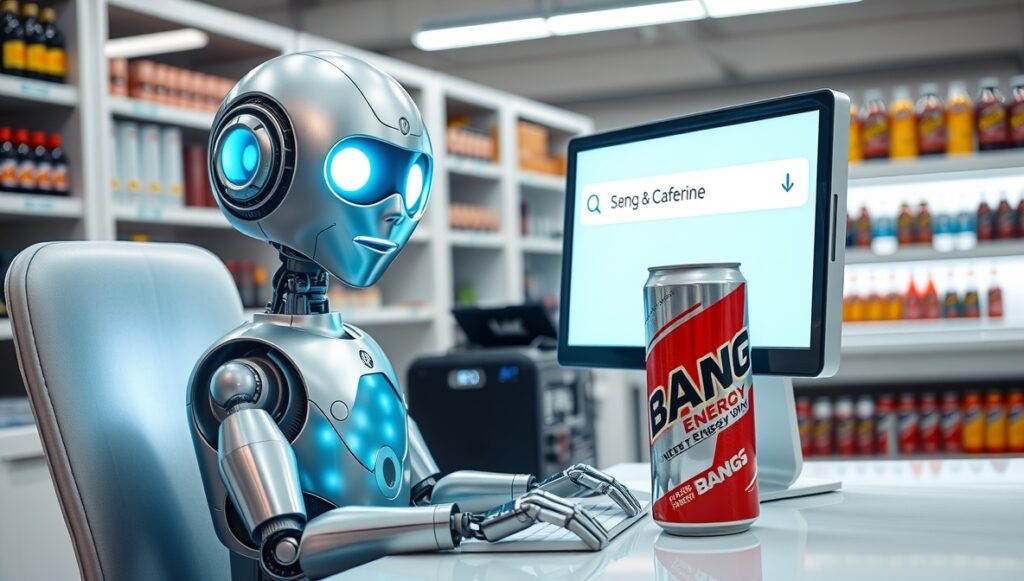
Conclusion
Caffeine can be a powerful ally when used wisely, offering increased focus, energy, and endurance. However, understanding your intake is essential for maintaining long-term health. Bang Energy stands out for its impressive performance-boosting effects, but its potency demands responsible consumption. Knowing how much caffeine is in Bang energy drink — 300 mg per 16-ounce can — empowers consumers to make safer choices.
By paying attention to your caffeine limits, staying hydrated, and avoiding multiple stimulants, you can enjoy the benefits of Bang Energy without risking adverse effects. Whether you’re an athlete, student, or busy professional, the key is balance and awareness. The next time you grab a can of Bang, remember that its power lies not just in flavor but in the significant caffeine content that fuels your day.

